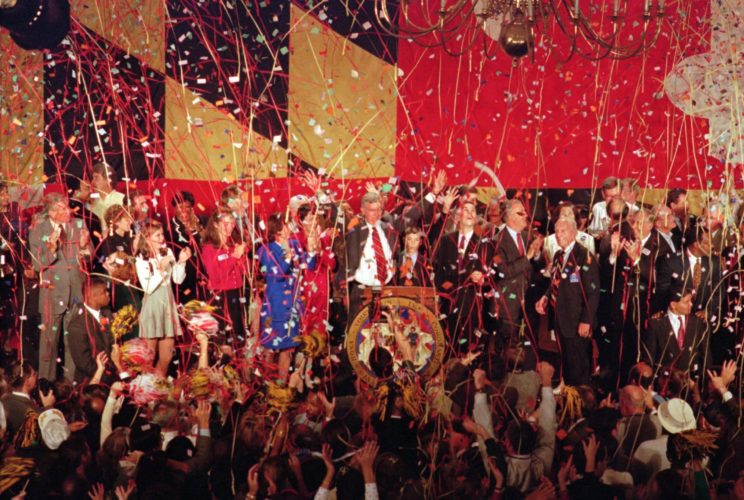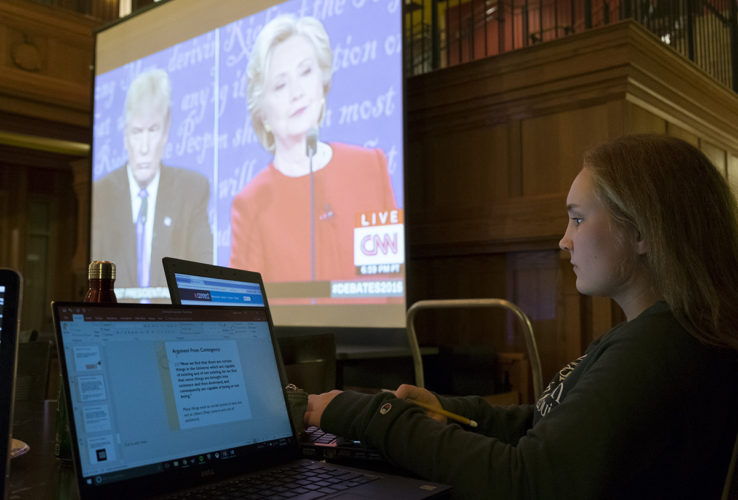Donald Trump’s election as president initially sent global markets reeling. What might we expect from the markets moving forward? John Horn, senior lecturer in economics at Olin breaks it down.
- Economic Implications: “The election of Donald Trump will have long-lasting implications for the United States and global economy. The election will be significant economically because his main support came from the middle- and lower-class workers struggling in the face of globalization. Immigration (the wall on the border with Mexico), trade deals (NAFTA and TPP), taxes (across the board, but aimed mostly at the higher income brackets) and health care will all be addressed in the coming months. How these topics get addressed will fundamentally determine whether President-elect Trump can truly make America great again.”
- Trade: “Most economists agree that trade and globalization have been good from a macro perspective: The size of the overall economic pie has gotten bigger in the U.S. and around the world. The core of Trump’s constituency are those who have not gotten a bigger slice of that pie … which is the downside of trade – not everyone shares equally in the gains. If we cut off trade with the rest of the world and the pie shrinks, how will President-elect Trump ensure that those who got left from the bigger pie (with trade) end up taking a larger slice from the shrinking pie (without trade)?”
-

John Horn
Manufacturing: “Manufacturing jobs have been hurt more by productivity gains (automation) than trade – those jobs lost to machines aren’t coming back. Unless there is a massive, large-scale retraining and skills-upgrade program, where will the new jobs come from? Infrastructure investments are good, short-term fixes to create jobs, but they don’t create long-term jobs (i.e., for 10 years or more) for those in the construction trade (unless we continually upgrade our infrastructure). Multiplier effects would help create ancillary jobs, but if the construction goes away, so do those support positions.”
- Negotiating deals: “If the U.S. kills off NAFTA, and the Mexican economy tanks, how will that help reduce illegal immigration into the U.S.? If the U.S. starts to thrive again, and Mexico shrinks, the pressure on the wall will become immense. Trade deals are as much political as they are economic – the EU and Trans-Pacific Partnership are as much about regional political power as they are about GDP growth. President-elect Trump often had the advantage of negotiating business deals from a position of power. But the U.S. will have a harder time dictating terms to the rest of the world. Incentives matter, and the leaders from other countries are incentivized to help their constituents – and keep their own jobs! Trump might be able to perfectly thread the needle and get better deals, but it’s hard to see how they would fundamentally advantage the U.S. without simultaneously disadvantaging the other countries. It’s hard to envision why another leader would accept that kind of deal.”
- Tax cuts: “Tax cuts to the wealthiest, including corporate tax cuts, could lead to more jobs, but could just as easily lead to more dividends to shareholders, or to further investments overseas. Economists will never agree 100% on which is more likely to happen… . Mandating what companies do with those tax cuts will be hard to pass Congress, and even harder to implement and enforce if authorized. There is no certainty that the lower and middle class will get pay raises and more jobs just because corporate tax cuts are enacted.”
- Obamacare: “The Affordable Care Act will not look anything like it does today – but what will replace it? If the lower and middle class get hurt by the repeal, then another plank of Trump’s support will weaken.”
- Be afraid. Be very afraid: “Ultimately, this is as much a political issue as an economic issue … though they are intricately linked. With the rise of nationalism in Europe with the U.K., Germany and France), with China’s struggles with a slowing economy, and with the collapse of oil revenues in the Middle East, the world is not in a great place to handle major shocks to the system. Trump’s supporters unquestionably have been hurt by globalization trends over the last 30 years. But there are major questions outstanding about how his major policy planks – immigration, trade, taxes and healthcare – will be implemented, how disruptive they will be and ultimately how well they will help that core constituency. If designed perfectly, they may well strengthen the lower and middle class. And a strong U.S. economy should help the global economy – as long as we haven’t cut ourselves off from it. But if the policies don’t help, or if Trump walks back those campaign promises, that dispossessed center will become even more angry with leadership in Washington. And that’s an election that we – and the rest of the world – should all be afraid of.”
Horn was a Senior Expert in the Strategy Practice of McKinsey & Company, based out of the Washington, DC, office, before joining Olin. Prior to joining McKinsey, John assisted major U.S. financial institutions with fair lending compliance as a consultant with Ernst & Young LLP.




 Washington University is one of 200 universities using
Washington University is one of 200 universities using 


